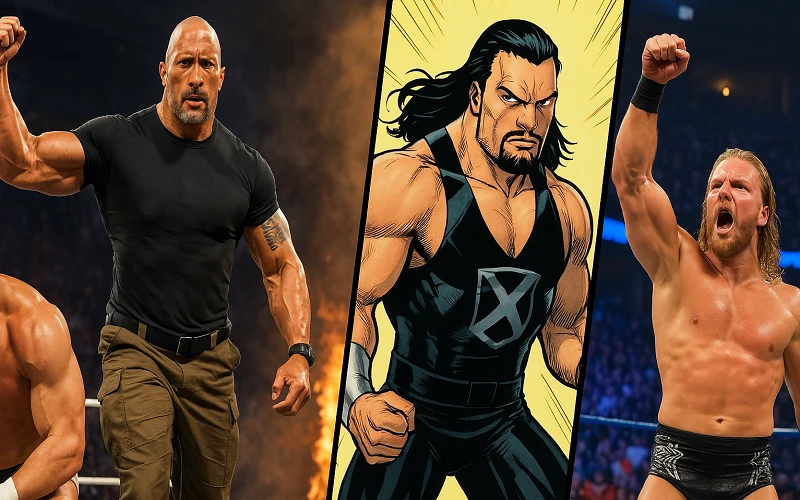Wrestling has become a cultural force in modern entertainment, shaping audiences’ engagement with performance and drama globally. WWE, a unique blend of athleticism and theatrical storytelling, has redefined entertainment. The ring’s footprints can be seen in film, television, social media, and fashion, proving that wrestling is not just a stage but a launchpad for broader cultural impact. This introduction explores how wrestling has become a driving force in shaping the modern entertainment landscape.
For decades, wrestling has morphed into a key pillar of global entertainment. Vince McMahon and other industry luminaries have leveraged unique personas and dramatic storylines to captivate audiences worldwide. Wrestling has evolved from a niche pastime to a cultural phenomenon, with millions of fans worldwide. Its adaptability and entertainment value have led to its growth from local circuits to the global stage.
The Evolution of Wrestling Entertainment
Wrestling has a rich history, starting with local venues where performers engaged in physical storytelling. It quickly became a mainstream attraction, gaining national and international attention. The 1980s and 1990s saw a boom with televised events, drawing larger audiences. Organizations like WWF and WWE played pivotal roles in shaping wrestling’s modern perception, introducing vibrant characters and riveting narratives.
Legendary moments and iconic rivalries have been etched into popular culture, reflecting the passion and drama that wrestling offers. Wrestling’s transformation into a mainstream cultural fixture is attributed to these dramatic enhancements.
Wrestling’s Transition to Mainstream Media
Wrestling has become a popular form of entertainment, with its themes and personalities appearing in television shows and films. This has increased its appeal beyond hardcore fans and paved the way for new storytelling forms. Wrestling has also been the subject of documentaries and TV series, elevating its status beyond traditional boundaries. The synergy between wrestling and mainstream media has produced a diverse mix of content, accessible to audiences worldwide, and is forging stronger connections with fans beyond live event arenas.
The Cultural Impact of Wrestling Globally
Wrestling has gained immense popularity worldwide, with countries like Japan and Mexico embracing the sport and contributing to its global cultural tapestry. The sport’s evolving narratives and varied performance styles make it a comprehensive art form with broad appeal.
The international fan base grows, drawn by its drama, athleticism, and showmanship. Wrestling’s cross-cultural appeal is due to its ability to weave local storytelling elements with universal themes of good versus evil, heroism, and defiance. Fans worldwide participate in a larger community, celebrating legacy and emerging talents through conventions and forums.
Business Strategies Behind Wrestling’s Success
Wrestling organizations’ financial strategies, including strategic marketing, lucrative licensing deals, and diversified business models, have contributed to their long-standing success. They have utilized monetization opportunities, digital content platforms, and live events to expand their brand. Their strategic expansion into global markets has further solidified wrestling’s international presence, as they adapt to changing consumer behaviors and position themselves as leading entities in the entertainment industry.
The Future of Wrestling in Entertainment
Wrestling is adapting to changing entertainment landscapes, with digital platforms making it more accessible to traditional and new fans. The digital age offers new forums for engagement, with virtual and augmented reality experiences providing immersive experiences. With an expanding global audience, wrestling will remain integral to modern entertainment for years. Regardless of its form or platform, wrestling’s emotional draw and storied tradition continue to underscore its perennial appeal.
Conclusion
Wrestling’s journey from a local sport to a global entertainment juggernaut is marked by strategic evolution and cultural adaptation. Its influence on media, culture, and business is indisputable, providing valuable insights into the dynamics of modern entertainment. Wrestling’s colorful history, peppered with memorable moments, highlights its ability to innovate while staying true to its roots.
As wrestling moves forward, its legacy will likely continue to grow, fueled by innovation and its fans’ passion. The fascinating blend of athletic prowess, character-driven drama, and theatrical flair will undoubtedly define new heights for the entertainment industry, particularly as it explores uncharted territories and embraces future technological advances.




